What is benign prostatic hypertrophy?
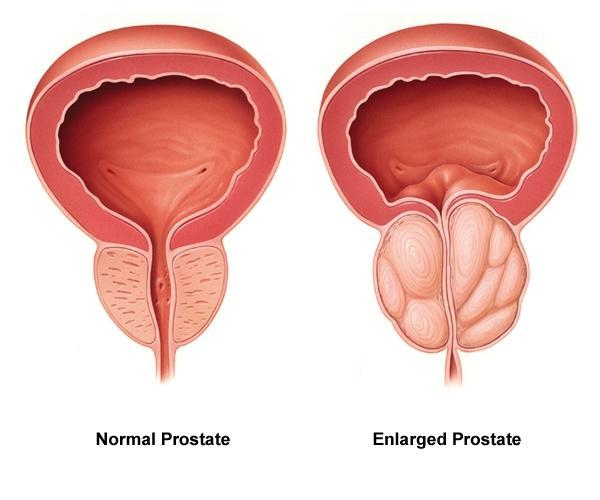
The prostate is a nut-shaped gland that envelops the urethra, the tube from which urine flows. The prostate is part of the male reproductive system. One of its important roles, along with other organs, is to add fluid to the sperm. It’s the fluid that carries the sperm.
The prostate is initially small and has two main phases of growth. Its size doubles during adolescence and then continues to grow after 25 years throughout life.
An enlarged prostate is also called benign prostate hyperplasia (BPH). This non-cancerous enlargement of the prostate blocks the flow of urine into the urethra. The narrowing of the urethra causes an even stronger contraction of the bladder to push urine through the body.
Gradually, this can make the bladder muscles stronger, thicker and too sensitive. The bladder then begins to contract if it contains only a small amount of urine, causing an urgent need to urinate more frequently than usual. Finally, the urine begins to accumulate in the bladder without being completely emptied.
Incomplete emptying of the bladder increases the risk of contracting a urinary tract infection. Bladder stones, blood in the urine, incontinence, and acute urinary retention are some of the complications associated with prostate enlargement. This can make your life very difficult.
Here is the best natural remedy in the world to cure benign prostatic hypertrophy. This herbal tea is a mixture of African and Chinese medicinal plants. These plants have anti-inflammatory, astringent, antibacterial and calming properties. This reduces the swelling of the prostate gland, restores sexual balance and provides immense relief. This natural remedy also contains several natural compounds that inhibit the inflammatory process triggering inflammation and pain in the prostate. It helps relieve urinary symptoms, including those caused by a too big prostate without the need for surgery. This is nature’s secret to curing benign prostatic hypertrophy.
To discover our natural remedy, click here
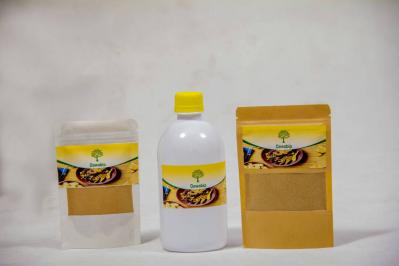
This natural treatment makes it possible to treat Prostatitis quite easily and it leaves no sequelae. From the first weeks of our natural treatment, pain in the lower back and in your penis will gradually disappear. You will no longer have difficulty urinating and your erection will gradually return to normal.
Causes of benign prostatic hypertrophy
Most men have continuous prostate growth throughout their lives. In many men, this growth continues and causes the prostate to grow to the point of causing urinary symptoms or significantly blocking the flow of urine.
It is not clear what causes prostate enlargement. However, this could be due to changes in the balance of sex hormones as men age.
It is common for the prostate to grow with age. About half of men over the age of 50 suffer from "benign prostatic hyperplasia", that is, from swelling or enlargement of the prostate. This can mean that the prostate changes from the size of a nut to that of an apricot or even a lemon.
In some men, enlarged prostate does not cause any symptoms or discomfort.
The following factors increase your risk of developing BPH:
- Aging;
- Excess belly fat (abdominal obesity);
- Lack of physical activity.
Symptoms of benign prostatic hypertrophy
It is possible that men with BPH have no signs or symptoms. If signs and symptoms occur, they most often do so after the age of 50.
Signs and symptoms of BPH begin to appear when an enlarged prostate exerts pressure on the urethra and bladder. This can reduce the diameter of the urethra (compress it) or block it, which can cause changes in urinary habits and difficulty urinating.
BPH can cause the following symptoms, sometimes called lower urinary tract symptoms:
- Difficulty urinating;
- Need to urinate more often (frequent urination), especially at night
- Urge or sudden urination (urgent urination)
- Weak or slow urine flow;
- Inability to completely empty the bladder, which can lead to urinary tract infections and bladder stones
- Difficulty starting to urinate (stress at urination);
- Difficulty controlling the bladder (incontinence), which can lead to urinary leakage
- Blood in the urine.
- Droplets at the end of urination.
- Inability to empty bladder completely
The size of your prostate does not necessarily determine the severity of your symptoms. Some men whose prostate is only slightly enlarged may have significant symptoms, while others, whose prostate is very enlarged, have only minor urinary symptoms.
We have a very effective natural treatment to permanently cure benign prostatic hyperplasia.
Order it and start the natural treatment for benign prostate hyperplasia early. An accompaniment is offered throughout the period of its taking. To reach us, click on the WhatsApp button in the right corner of your screen or contact us at +229 66 23 89 56.
CLICK HERE TO OBTAIN IT
We have representation in all African countries and actively in the following countries: Cameroon, Ivory Coast, Mali, Senegal, Burkina Faso, Togo, Kenya, Nigeria, Gabon, Central African Republic, Benin, Chad, Congo-Brazzaville and Kinshasa. So rest assured that you will receive your products immediately after your order.
Shipping is free worldwide.
African medicinal plants against benign prostatic hypertrophy
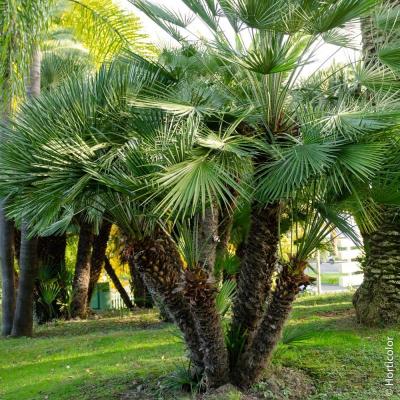 Dwarf palm cabbage is a herbal remedy derived from the fruit of a type of palm. Dwarf Palm Cabbage is one of the most studied and widely used herbal supplements to treat benign prostatic hypertrophy. Its active principle inhibits testosterone production and reduces the size of the internal wall of the prostate.
Dwarf palm cabbage is a herbal remedy derived from the fruit of a type of palm. Dwarf Palm Cabbage is one of the most studied and widely used herbal supplements to treat benign prostatic hypertrophy. Its active principle inhibits testosterone production and reduces the size of the internal wall of the prostate.
Instructions for use:
Take 160-320 mg of Dwarf Palm Cabbage supplement, divided into two doses daily for 6 weeks until symptoms improve.
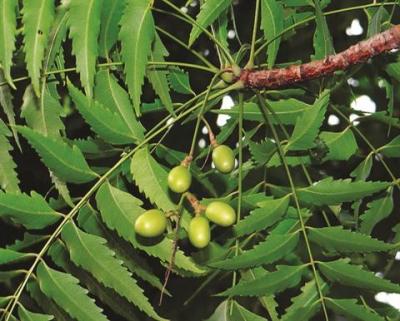 Pygeum comes from the bark of the wild African plum tree and is used in traditional medicine to treat urinary problems since antiquity. It is often used to treat the symptoms of BPH, especially in Europe. We think Pygeum helps with bladder emptying and urine flow. This will give you a lot of relief.
Pygeum comes from the bark of the wild African plum tree and is used in traditional medicine to treat urinary problems since antiquity. It is often used to treat the symptoms of BPH, especially in Europe. We think Pygeum helps with bladder emptying and urine flow. This will give you a lot of relief.
Instructions for use:
Take 50-100mg of Pygeum supplement every day for 6-8 weeks until symptoms improve.
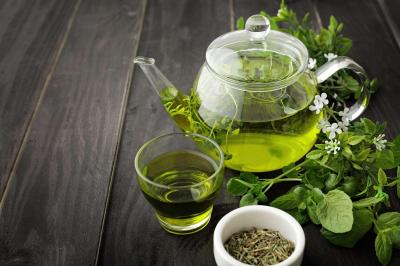 Green tea contains many antioxidants called catechins, which strengthen the immune system and potentially slow the progression of prostate cancer. It is important to know that green tea contains caffeine. Caffeine can stimulate the bladder and cause a sudden urge to urinate which can worsen the symptoms of BPH.
Green tea contains many antioxidants called catechins, which strengthen the immune system and potentially slow the progression of prostate cancer. It is important to know that green tea contains caffeine. Caffeine can stimulate the bladder and cause a sudden urge to urinate which can worsen the symptoms of BPH.
Instructions for use:
- Add a teaspoon of green tea to a cup of hot water.
- Infuse for 5 to 10 minutes and filter.
- Drink hot tea twice a day (morning and evening).
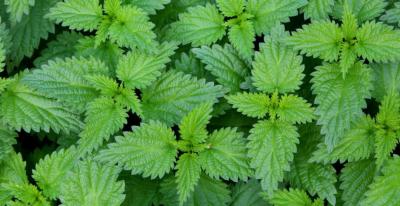 You will know if you have ever touched the European nettle. Indeed, the hairs of its leaves can cause acute and intense pain. But nettle doesn’t have only disadvantages. It has certain advantages when used as a drug.
You will know if you have ever touched the European nettle. Indeed, the hairs of its leaves can cause acute and intense pain. But nettle doesn’t have only disadvantages. It has certain advantages when used as a drug.
Nettle root improves some symptoms of BPH and is commonly used in Europe. Indeed, nettle root has anti-inflammatory and immunomodulatory properties. These properties are perfect to help manage the symptoms of benign prostatic hypertrophy without any side effects. Sometimes nettle is used in combination with other natural treatments for BPH, such as pygeum or dwarf palm cabbage.
Instructions for use:
-Add one to two teaspoons of nettle root to a cup of water.
-Bring to a boil in a saucepan.
-Simmer for 5 minutes and strain.
-Drink hot tea twice daily (morning and evening)
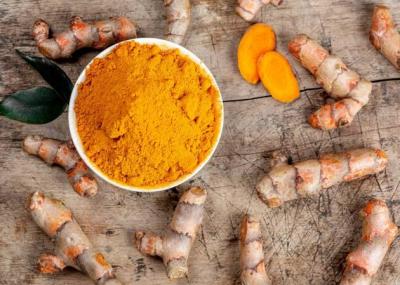 Turmeric is one of the most powerful and well-known medicinal plants. Turmeric is a rare spice. Its use to treat urinary problems dates back more than 4000 years. Curcumin is the active component of turmeric. Curcumin has protective effects on prostate enlargement (BPH) and may help inhibit it.
Turmeric is one of the most powerful and well-known medicinal plants. Turmeric is a rare spice. Its use to treat urinary problems dates back more than 4000 years. Curcumin is the active component of turmeric. Curcumin has protective effects on prostate enlargement (BPH) and may help inhibit it.
Instructions for use:
-mix a teaspoon of turmeric powder in a glass of warm milk.
-Let cool a little and drink the mixture one faith a day.
We have a very effective natural treatment to permanently cure benign prostatic hyperplasia.
Order it and start the natural treatment for benign prostate hyperplasia early. An accompaniment is offered throughout the period of its taking. To reach us, click on the WhatsApp button in the right corner of your screen or contact us at +229 66 23 89 56.
CLICK HERE TO OBTAIN IT
We have representation in all African countries and actively in the following countries: Cameroon, Ivory Coast, Mali, Senegal, Burkina Faso, Togo, Kenya, Nigeria, Gabon, Central African Republic, Benin, Chad, Congo-Brazzaville and Kinshasa. So rest assured that you will receive your products immediately after your order.
Shipping is free worldwide.
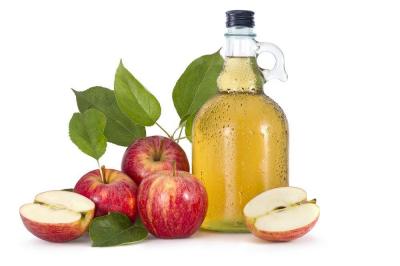 Apple cider vinegar is very good for your prostate. Raw unfiltered apple cider vinegar has astringent properties, helping to shrink swollen prostate glands. In fact, it facilitates weight loss and helps prevent complications of enlarged prostate, such as urinary tract infections.
Apple cider vinegar is very good for your prostate. Raw unfiltered apple cider vinegar has astringent properties, helping to shrink swollen prostate glands. In fact, it facilitates weight loss and helps prevent complications of enlarged prostate, such as urinary tract infections.
Instructions for use:
-mix 1 to 2 tablespoons unfiltered raw apple cider vinegar with 1 tablespoon honey in a glass of warm water.
-Drink this at least twice a day.
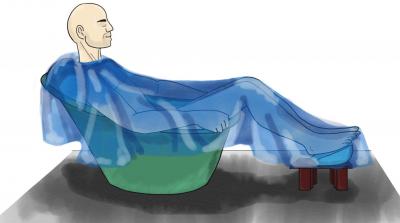 The seat bath is an old-fashioned method that really works to calm down an enlarged prostate. Warm bathing relaxes the pelvic muscles and promotes healing. Cold bathing relieves pain and reduces swelling.
The seat bath is an old-fashioned method that really works to calm down an enlarged prostate. Warm bathing relaxes the pelvic muscles and promotes healing. Cold bathing relieves pain and reduces swelling.
Instructions for use:
-fill the tub with warm water
-add ½ cup Epsom salt.
-In another tub (or large container), fill with cold water and add several drops of lavender essential oil to the tub.
-Now you sit in the hot tub for about 3 minutes. Then switch to one with cold water for 1 minute.
 Kegel exercises help strengthen the muscles of the pelvic region. These exercises mainly consist of tightening the bladder for a few seconds, as if you were trying to stop the flow of urine and then release. Kegel exercises are beneficial for men with enlarged prostate and incontinence, as they help manage urinary tract symptoms.
Kegel exercises help strengthen the muscles of the pelvic region. These exercises mainly consist of tightening the bladder for a few seconds, as if you were trying to stop the flow of urine and then release. Kegel exercises are beneficial for men with enlarged prostate and incontinence, as they help manage urinary tract symptoms.
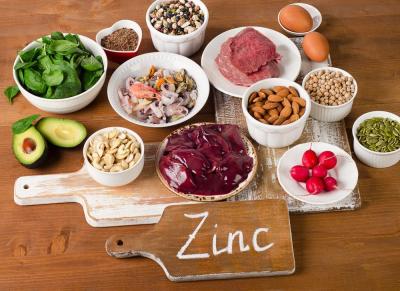 A chronic zinc deficiency increases the likelihood of developing BPH. Taking zinc supplements or increasing dietary zinc intake can help reduce urinary symptoms associated with enlarged prostate.
A chronic zinc deficiency increases the likelihood of developing BPH. Taking zinc supplements or increasing dietary zinc intake can help reduce urinary symptoms associated with enlarged prostate.
Here are the foods rich in zinc: oysters, crab, lobster, seafood, seeds, nuts,
In case of adenoma or to prevent cancer, plants can accompany treatments and avoid surgical procedures.
Frequent urge to urinate forcing night awakenings, weak jet and difficulty to urinate or, on the contrary, compelling urination... After 50 years, these disorders affect one in two men and are symptomatic of prostatic hypertrophy (or prostate adenoma), that is, its abnormal enlargement. The prostate then compresses the bladder and urethra, which explains the urinary discomfort. Prostatic adenoma has no established association with prostate cancer but, untreated, it can become disabling and lead to urinary obstruction and urinary tract infections. Surgery consisting of partial or total removal of the organ is often proposed, resulting in sterility and often erectile problems. To avoid surgery, conventional treatments are inhibitors of 5-alpha reductase (the enzyme responsible for hypertrophy). These drugs are sometimes contested because of their side effects (sexual disorders, lower libido, gynecomastia...). Also, to accompany benign disorders in their early stages, the use of plants is an interesting alternative. However, self-medication can be dangerous if it is not preceded by a medical check. Indeed, the symptoms of prostate cancer are close to adenoma and a visit to the doctor or urologist at the first urinary disorders will ensure the absence of cancer.
We have a very effective natural treatment to permanently cure benign prostatic hyperplasia.
Order it and start the natural treatment for benign prostate hyperplasia early. An accompaniment is offered throughout the period of its taking. To reach us, click on the WhatsApp button in the right corner of your screen or contact us at +229 66 23 89 56.
CLICK HERE TO OBTAIN IT
We have representation in all African countries and actively in the following countries: Cameroon, Ivory Coast, Mali, Senegal, Burkina Faso, Togo, Kenya, Nigeria, Gabon, Central African Republic, Benin, Chad, Congo-Brazzaville and Kinshasa. So rest assured that you will receive your products immediately after your order.
Shipping is free worldwide.
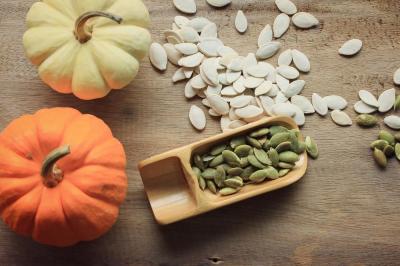 Pumpkin seed extracts (Cucurbita pepo) are recognized by Commission E to “facilitate the release of urine in men with BPH.” These seeds contain many substances (phytosterols, essential fatty acids, etc.) whose action on the prostate is poorly known. There are few studies on pumpkin seeds alone (they are often associated with other plants proposed in the treatment of BPH). Their use in this indication is based on tradition.
Pumpkin seed extracts (Cucurbita pepo) are recognized by Commission E to “facilitate the release of urine in men with BPH.” These seeds contain many substances (phytosterols, essential fatty acids, etc.) whose action on the prostate is poorly known. There are few studies on pumpkin seeds alone (they are often associated with other plants proposed in the treatment of BPH). Their use in this indication is based on tradition.
-
Dwarf Palm and African Plum
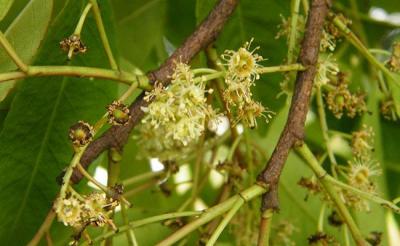 Frequently associated with nettle, the dwarf palm or Florida palm (Serenoa repens Small), formerly known as Sabal serrulata, is the other plant associated with prostate and urination disorders in herbal medicine. It is the fruits of this small palm of the United States that are used and presented in drug form. More than a dozen studies show its effects on the frequency of urination (and night awakenings). The bark of African plum (Prunus africana) has an identical efficiency, but this large tree native to Madagascar would be endangered, and for this reason it is better to turn to the Florida palm.
Frequently associated with nettle, the dwarf palm or Florida palm (Serenoa repens Small), formerly known as Sabal serrulata, is the other plant associated with prostate and urination disorders in herbal medicine. It is the fruits of this small palm of the United States that are used and presented in drug form. More than a dozen studies show its effects on the frequency of urination (and night awakenings). The bark of African plum (Prunus africana) has an identical efficiency, but this large tree native to Madagascar would be endangered, and for this reason it is better to turn to the Florida palm.
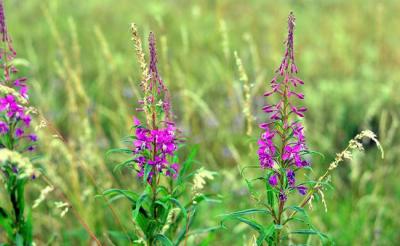 This beautiful pink flower common in the Alps seems promising to treat enlarged prostate. Dr Kurt Hostettmann, a leading researcher in phytomedicines, recounts how he discovered its properties: "At the age of 65, my own father had urination problems and refused the prostate surgery that was proposed to him. I had read that Maria Treben, an Austrian herbalist, recommended this plant. She had observed in the valleys cut off from Austria that she was consumed in herbal tea, as a substitute for tea, and that prostate surgery was much less important there than elsewhere. It was not based on any scientific study, but I suggested that my father try it. He did. Morning and evening he took his infusion of Spike-primrose, and after three to four weeks his night-time urination diminished markedly. He never had prostate problems again until his death almost 25 years later.' On the strength of this first experience, Dr Hostettmann then entrusted this doctoral thesis subject to one of his young collaborators.
This beautiful pink flower common in the Alps seems promising to treat enlarged prostate. Dr Kurt Hostettmann, a leading researcher in phytomedicines, recounts how he discovered its properties: "At the age of 65, my own father had urination problems and refused the prostate surgery that was proposed to him. I had read that Maria Treben, an Austrian herbalist, recommended this plant. She had observed in the valleys cut off from Austria that she was consumed in herbal tea, as a substitute for tea, and that prostate surgery was much less important there than elsewhere. It was not based on any scientific study, but I suggested that my father try it. He did. Morning and evening he took his infusion of Spike-primrose, and after three to four weeks his night-time urination diminished markedly. He never had prostate problems again until his death almost 25 years later.' On the strength of this first experience, Dr Hostettmann then entrusted this doctoral thesis subject to one of his young collaborators.
It was found to be effective in fighting prostate adenoma, limiting the number of urinations, strengthening the urinary stream and flow, by the same mechanism as current synthetic drugs (inhibition of 5-alpha reductase, the enzyme responsible for hypertrophy). The plant’s active ingredients are mainly present in tannins, which are soluble in water. Hence its effectiveness in the form of herbal tea (for example 20 days a month). There are several varieties of Spike-primrose, and the recommended ones are Small-flowered Spike-primrose (Epilobium parviflorum Schreb), because they contain so many active ingredients, but less tannins, which could eventually be irritating to the stomach. Some research suggests the usefulness of Spike-primrose for prostate cancer cells, but this remains to be confirmed.
Finally, squash seeds are also frequently cited to decrease the symptoms of benign prostate adenoma and are well known to Germans for this property. They are easily found in all shops, and if their virtues on the prostate are not completely established, their richness in nutrients makes it a healthy food to consume daily.
-
Diet rich in fruit and vegetables
 Unsurprisingly, the best foods to eat are fruits and vegetables and more generally herbal diets, as these are anti-inflammatory and rich in antioxidants. Read this article to know which foods are good for the prostate.
Unsurprisingly, the best foods to eat are fruits and vegetables and more generally herbal diets, as these are anti-inflammatory and rich in antioxidants. Read this article to know which foods are good for the prostate.
At the same time, it is important to strongly limit the consumption of food that promotes inflammation. This is why it is advisable to limit foods of animal origin - such as red meat, sausages and foods high in trans fats.
In addition, vegetables, especially green leafy vegetables, and fruits such as cranberries are rich in antioxidants and reduce the oxidative stress of cells, and should be preferred.
Similarly, soybeans would be interesting for fighting prostate inflammation. Indeed, as a phytoestrogen, it acts as a brake on testosterone production, which fuels prostate growth.
Other foods to eat include green bananas, which are rich in fiber, and starchy foods such as lentils, green beans and red beans, which feed good bacteria from the intestinal microbiota, which help fight inflammation.
Finally, among the oils, we can mention the pumpkin seed oil whose several studies have shown the benefits to cure prostate disorders and the urinary disorders that result. Finally, there are natural dietary supplements for the prostate.
We have a very effective natural treatment to permanently cure benign prostatic hyperplasia.
Order it and start the natural treatment for benign prostate hyperplasia early. An accompaniment is offered throughout the period of its taking. To reach us, click on the WhatsApp button in the right corner of your screen or contact us at +229 66 23 89 56.
CLICK HERE TO OBTAIN IT
We have representation in all African countries and actively in the following countries: Cameroon, Ivory Coast, Mali, Senegal, Burkina Faso, Togo, Kenya, Nigeria, Gabon, Central African Republic, Benin, Chad, Congo-Brazzaville and Kinshasa. So rest assured that you will receive your products immediately after your order.
Shipping is free worldwide.
-
The practice of a sports activity
 The weekly practice of physical activity can combat inflammation, including enlarged prostate; and if you are not a seasoned sportsman, know that sessions do not need to be intensive. It is recommended to practice at least 150 minutes of moderate intensity aerobic activity each week (about 30 minutes a day, five days a week).
The weekly practice of physical activity can combat inflammation, including enlarged prostate; and if you are not a seasoned sportsman, know that sessions do not need to be intensive. It is recommended to practice at least 150 minutes of moderate intensity aerobic activity each week (about 30 minutes a day, five days a week).
And if you don’t know which sport to turn to, you can practice walking, cycling or swimming that have the advantage of not being traumatic for the body and joints.
-
Listening to your organization
 One of the easiest things to do to avoid the symptoms of urinary discomfort caused by enlarged prostate is to change some of your habits by going to the bathroom. In fact, it is, above all, to urinate as soon as you feel the need and to empty your bladder completely with each urination. Here are some good practices to observe:
One of the easiest things to do to avoid the symptoms of urinary discomfort caused by enlarged prostate is to change some of your habits by going to the bathroom. In fact, it is, above all, to urinate as soon as you feel the need and to empty your bladder completely with each urination. Here are some good practices to observe:
Relax before you urinate. Breathe deeply and stay calm even if you urinate causes discomfort
Sit on the toilet instead of standing
If you don’t or no longer feel like urinating, a simple tip is to turn on a tap and watch the water run. This simple gesture can make you want to urinate
Take your time, reading while urinating
Double emptying: urinate as much as possible, relax for a few moments, then urinate again.
We have a very effective natural treatment to permanently cure benign prostatic hyperplasia.
Order it and start the natural treatment for benign prostate hyperplasia early. An accompaniment is offered throughout the period of its taking. To reach us, click on the WhatsApp button in the right corner of your screen or contact us at +229 66 23 89 56.
CLICK HERE TO OBTAIN IT
We have representation in all African countries and actively in the following countries: Cameroon, Ivory Coast, Mali, Senegal, Burkina Faso, Togo, Kenya, Nigeria, Gabon, Central African Republic, Benin, Chad, Congo-Brazzaville and Kinshasa. So rest assured that you will receive your products immediately after your order.
Shipping is free worldwide.
 Hi. Lily is my name, I urge you from my heart not listen to your medical doctors who tells you that Hepatitis and other virus have no cure as i almost ruined my life trying to mange a condition that herbs can actually cure. I am 30 years with two kids, i was diagnosed of what doctors called acute hepatitis B infections my organs were failing. On a certain day i collapsed while teaching in the class room this incident lead me to a student whose daddy have been cured by doctor White Tiv. i wrote him on whats app using +2349091844595. This man collected his heavenly gifted herbs, prepare the cure for an amount bellow my expectation and courier them to me and less than a week of using this his miraculous medicines i could tell i am fine by the kind of urine i pass, my weight loss, good night sleep among others. Contact Doctor White Tiv for cure such as:-
Hi. Lily is my name, I urge you from my heart not listen to your medical doctors who tells you that Hepatitis and other virus have no cure as i almost ruined my life trying to mange a condition that herbs can actually cure. I am 30 years with two kids, i was diagnosed of what doctors called acute hepatitis B infections my organs were failing. On a certain day i collapsed while teaching in the class room this incident lead me to a student whose daddy have been cured by doctor White Tiv. i wrote him on whats app using +2349091844595. This man collected his heavenly gifted herbs, prepare the cure for an amount bellow my expectation and courier them to me and less than a week of using this his miraculous medicines i could tell i am fine by the kind of urine i pass, my weight loss, good night sleep among others. Contact Doctor White Tiv for cure such as:- If he isn't large enough then he isn't my spec. I loved him, the chemistry was perfect, smiles good, best physic with so much cash to throw around but down there he had a carrot size which turns me off when ever he comes around. i had to turn to my driver for regular clean up.
If he isn't large enough then he isn't my spec. I loved him, the chemistry was perfect, smiles good, best physic with so much cash to throw around but down there he had a carrot size which turns me off when ever he comes around. i had to turn to my driver for regular clean up.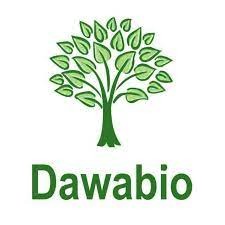



 Pygeum comes from the bark of the wild African plum tree and is used in traditional medicine to treat urinary problems since antiquity. It is often used to treat the symptoms of BPH, especially in Europe. We think Pygeum helps with bladder emptying and urine flow. This will give you a lot of relief.
Pygeum comes from the bark of the wild African plum tree and is used in traditional medicine to treat urinary problems since antiquity. It is often used to treat the symptoms of BPH, especially in Europe. We think Pygeum helps with bladder emptying and urine flow. This will give you a lot of relief. Green tea contains many antioxidants called catechins, which strengthen the immune system and potentially slow the progression of prostate cancer. It is important to know that green tea contains caffeine. Caffeine can stimulate the bladder and cause a sudden urge to urinate which can worsen the symptoms of BPH.
Green tea contains many antioxidants called catechins, which strengthen the immune system and potentially slow the progression of prostate cancer. It is important to know that green tea contains caffeine. Caffeine can stimulate the bladder and cause a sudden urge to urinate which can worsen the symptoms of BPH. You will know if you have ever touched the European nettle. Indeed, the hairs of its leaves can cause acute and intense pain. But nettle doesn’t have only disadvantages. It has certain advantages when used as a drug.
You will know if you have ever touched the European nettle. Indeed, the hairs of its leaves can cause acute and intense pain. But nettle doesn’t have only disadvantages. It has certain advantages when used as a drug. Turmeric is one of the most powerful and well-known medicinal plants. Turmeric is a rare spice. Its use to treat urinary problems dates back more than 4000 years. Curcumin is the active component of turmeric. Curcumin has protective effects on prostate enlargement (BPH) and may help inhibit it.
Turmeric is one of the most powerful and well-known medicinal plants. Turmeric is a rare spice. Its use to treat urinary problems dates back more than 4000 years. Curcumin is the active component of turmeric. Curcumin has protective effects on prostate enlargement (BPH) and may help inhibit it. Apple cider vinegar is very good for your prostate. Raw unfiltered apple cider vinegar has astringent properties, helping to shrink swollen prostate glands. In fact, it facilitates weight loss and helps prevent complications of enlarged prostate, such as urinary tract infections.
Apple cider vinegar is very good for your prostate. Raw unfiltered apple cider vinegar has astringent properties, helping to shrink swollen prostate glands. In fact, it facilitates weight loss and helps prevent complications of enlarged prostate, such as urinary tract infections. The seat bath is an old-fashioned method that really works to calm down an enlarged prostate. Warm bathing relaxes the pelvic muscles and promotes healing. Cold bathing relieves pain and reduces swelling.
The seat bath is an old-fashioned method that really works to calm down an enlarged prostate. Warm bathing relaxes the pelvic muscles and promotes healing. Cold bathing relieves pain and reduces swelling. Kegel exercises help strengthen the muscles of the pelvic region. These exercises mainly consist of tightening the bladder for a few seconds, as if you were trying to stop the flow of urine and then release. Kegel exercises are beneficial for men with enlarged prostate and incontinence, as they help manage urinary tract symptoms.
Kegel exercises help strengthen the muscles of the pelvic region. These exercises mainly consist of tightening the bladder for a few seconds, as if you were trying to stop the flow of urine and then release. Kegel exercises are beneficial for men with enlarged prostate and incontinence, as they help manage urinary tract symptoms. A chronic zinc deficiency increases the likelihood of developing BPH. Taking zinc supplements or increasing dietary zinc intake can help reduce urinary symptoms associated with enlarged prostate.
A chronic zinc deficiency increases the likelihood of developing BPH. Taking zinc supplements or increasing dietary zinc intake can help reduce urinary symptoms associated with enlarged prostate. Pumpkin seed extracts (Cucurbita pepo) are recognized by Commission E to “facilitate the release of urine in men with BPH.” These seeds contain many substances (phytosterols, essential fatty acids, etc.) whose action on the prostate is poorly known. There are few studies on pumpkin seeds alone (they are often associated with other plants proposed in the treatment of BPH). Their use in this indication is based on tradition.
Pumpkin seed extracts (Cucurbita pepo) are recognized by Commission E to “facilitate the release of urine in men with BPH.” These seeds contain many substances (phytosterols, essential fatty acids, etc.) whose action on the prostate is poorly known. There are few studies on pumpkin seeds alone (they are often associated with other plants proposed in the treatment of BPH). Their use in this indication is based on tradition. Frequently associated with nettle, the dwarf palm or Florida palm (Serenoa repens Small), formerly known as Sabal serrulata, is the other plant associated with prostate and urination disorders in herbal medicine. It is the fruits of this small palm of the United States that are used and presented in drug form. More than a dozen studies show its effects on the frequency of urination (and night awakenings). The bark of African plum (Prunus africana) has an identical efficiency, but this large tree native to Madagascar would be endangered, and for this reason it is better to turn to the Florida palm.
Frequently associated with nettle, the dwarf palm or Florida palm (Serenoa repens Small), formerly known as Sabal serrulata, is the other plant associated with prostate and urination disorders in herbal medicine. It is the fruits of this small palm of the United States that are used and presented in drug form. More than a dozen studies show its effects on the frequency of urination (and night awakenings). The bark of African plum (Prunus africana) has an identical efficiency, but this large tree native to Madagascar would be endangered, and for this reason it is better to turn to the Florida palm. This beautiful pink flower common in the Alps seems promising to treat enlarged prostate. Dr Kurt Hostettmann, a leading researcher in phytomedicines, recounts how he discovered its properties: "At the age of 65, my own father had urination problems and refused the prostate surgery that was proposed to him. I had read that Maria Treben, an Austrian herbalist, recommended this plant. She had observed in the valleys cut off from Austria that she was consumed in herbal tea, as a substitute for tea, and that prostate surgery was much less important there than elsewhere. It was not based on any scientific study, but I suggested that my father try it. He did. Morning and evening he took his infusion of Spike-primrose, and after three to four weeks his night-time urination diminished markedly. He never had prostate problems again until his death almost 25 years later.' On the strength of this first experience, Dr Hostettmann then entrusted this doctoral thesis subject to one of his young collaborators.
This beautiful pink flower common in the Alps seems promising to treat enlarged prostate. Dr Kurt Hostettmann, a leading researcher in phytomedicines, recounts how he discovered its properties: "At the age of 65, my own father had urination problems and refused the prostate surgery that was proposed to him. I had read that Maria Treben, an Austrian herbalist, recommended this plant. She had observed in the valleys cut off from Austria that she was consumed in herbal tea, as a substitute for tea, and that prostate surgery was much less important there than elsewhere. It was not based on any scientific study, but I suggested that my father try it. He did. Morning and evening he took his infusion of Spike-primrose, and after three to four weeks his night-time urination diminished markedly. He never had prostate problems again until his death almost 25 years later.' On the strength of this first experience, Dr Hostettmann then entrusted this doctoral thesis subject to one of his young collaborators. Unsurprisingly, the best foods to eat are fruits and vegetables and more generally herbal diets, as these are anti-inflammatory and rich in antioxidants. Read this article to know which
Unsurprisingly, the best foods to eat are fruits and vegetables and more generally herbal diets, as these are anti-inflammatory and rich in antioxidants. Read this article to know which  The weekly practice of physical activity can combat inflammation, including enlarged prostate; and if you are not a seasoned sportsman, know that sessions do not need to be intensive. It is recommended to practice at least 150 minutes of moderate intensity aerobic activity each week (about 30 minutes a day, five days a week).
The weekly practice of physical activity can combat inflammation, including enlarged prostate; and if you are not a seasoned sportsman, know that sessions do not need to be intensive. It is recommended to practice at least 150 minutes of moderate intensity aerobic activity each week (about 30 minutes a day, five days a week).  One of the easiest things to do to avoid the symptoms of urinary discomfort caused by enlarged prostate is to change some of your habits by going to the bathroom. In fact, it is, above all, to urinate as soon as you feel the need and to empty your bladder completely with each urination. Here are some good practices to observe:
One of the easiest things to do to avoid the symptoms of urinary discomfort caused by enlarged prostate is to change some of your habits by going to the bathroom. In fact, it is, above all, to urinate as soon as you feel the need and to empty your bladder completely with each urination. Here are some good practices to observe: